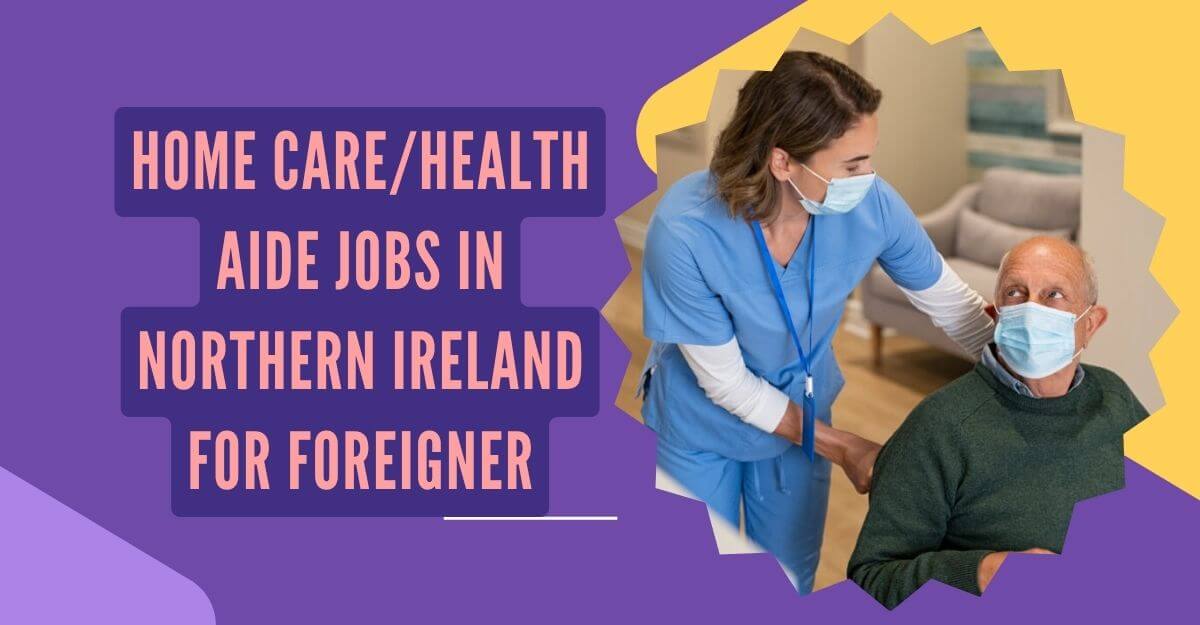Nursing Jobs in Austria with Visa Sponsorship For Foreigners

Are you trying to find work as a nurse in Austria? Then you’re headed in the correct direction! In the whole European Union, healthcare workers—from cardiac surgeons to healthcare assistants—are highly compensated and esteemed. One of the best, most fulfilling, and easiest careers for women is nursing. For this reason, the majority of women, both in developed and developing countries, rank teaching and nursing as their top choices. By 2030, Austria is expected to experience a nursing shortage, according to the Austrian Institute of Economic Research (WIFO).
Germany is one of the highest-paying nations for nurses because of a more severe shortage in its neighbor and influencer. Austria and its neighbors in the EU are funding foreign nurses to come and work for them in order to address this shortfall. In exchange, they provide them with several benefits and entitlements in addition to a respectable salary. This post is for you if you are a licensed nurse and Austria is your ideal travel location! This site contains all of the information on nursing jobs in Austria, including job criteria, typical pay, and working conditions, as well as the contacts and links of the employers who are hiring.
Details of Nursing Jobs in Austria with Visa Sponsorship
Key Points
- Job title: Nurse
- Country: Austria.
- Knowledge required: Yes.
- Experience required: Preferably Yes.
- Visa Sponsorship: Yes.
Read Also: Registered Nurse Jobs in Austria With Visa Sponsorship
Requirements
Recognized Nursing Education
- You need to have earned a nursing degree or diploma that meets Austrian requirements.
- Over shorter diplomas, a four-year Bachelor of Science in Nursing (BSN) is favored.
- A Master of Science in Nursing (MSN) or other additional credentials is advantageous.
- The Austrian Federal Ministry of Social Affairs, Health, Care, and Consumer Protection must formally recognize (nostrify) your educational credentials.
Work Experience
- It is typically necessary or highly desired to have at least one year of experience as a Registered Nurse (RN).
- Your application is strengthened by clinical experience in nursing homes or hospitals.
German Language Proficiency
- According to CEFR criteria, a minimum B2-level German certificate is required.
- Accepted certificates include:
- Goethe-Zertifikat B2
- ÖSD Zertifikat B2
- TELC B2
Required Documents
You will need to provide the following:
- Educational certificates and transcripts
- Proof of work experience
- German B2 language certificate
- Valid passport
- Medical certificate proving you are physically and mentally fit to work
- Police clearance certificate (criminal background check)
- CV (Lebenslauf) in German
- Letter of motivation (in German)
Work Visa or Red-White-Red Card
- You must apply for a work visa or the Red-White-Red Card, which permits both employment and residence, if you are not from the EU or EEA.
- An offer of employment from a healthcare company in Austria will greatly help your immigration application.
Registration and License to Practice
- To legally practice, you must register with the Austrian Health Professions Register (Gesundheitsberuferegister, or GBR) once your credentials have been accepted and you have fulfilled the language and documentation criteria.
Average Salary
The average salary for a nurse is 2,920 EUR, per. The annual average is as low as 1460 EUR and as high as 4520 EUR. It’s also a good idea to keep in mind that registered nurses (RNs) make more money.
Benefits of Nursing Job in Austria.
Pathway to Immigration
- Due to the great need for nurses in Austria, obtaining a Red-White-Red Card or a work visa is made simpler.
- You can seek for permanent residency and eventually Austrian citizenship after working for a few years.
Competitive Salary
- In Austria, nurses make between €2,500 and €3,500 a month, depending on their region, experience, and qualifications.
- Earnings may rise with overtime, night work, and holiday compensation.
- There may be paid training and annual bonuses available.
Family Reunification
- Family reunification provisions allow you to bring your spouse and kids after you’re situated.
- Health care, education, and other social services are available to dependents.
Parental Leave & Family Support
- Austria provides up to 16 weeks of maternity leave with work protection, as well as substantial paternal and maternal leave.
- Paid leave for family care and other childcare support benefits are provided.
Strong Employee Rights & Work-Life Balance
- Austrian labor law ensures:
- Fixed working hours (usually 38–40 hours/week)
- Paid vacation (minimum 5 weeks/year)
- Sick leave and health insurance
Continuous Education and Growth
- chances for professional growth and specialization (e.g., geriatrics, ICU, mental health).
- Advanced nursing education and additional certification are encouraged in Austria.
How to Apply
Conclusion
For international nurses looking for steady work, immigration assistance, and professional advancement, Austria offers a bright future. Austria is actively seeking competent foreign nurses due to its aging population and impending scarcity of healthcare workers. This could be your route to a fulfilling career and permanent residency in Europe if you fulfill the language, educational, and professional requirements. Explore your options for starting your nursing career in Austria by taking the first step right now.
Frequently Asked Questions
-
Is Austria a good country for foreign nurses to work in?
Yes, Austria is a great place for foreign nurses to work because of its strong employee rights, competitive pay, high demand, and immigration routes like the Red-White-Red Card.
-
Do I need to speak German to work as a nurse in Austria?
Yes, at least a B2-level German proficiency (according to CEFR) is required, with accepted certificates such as Goethe-Zertifikat B2, TELC B2, or ÖSD Zertifikat B2.



